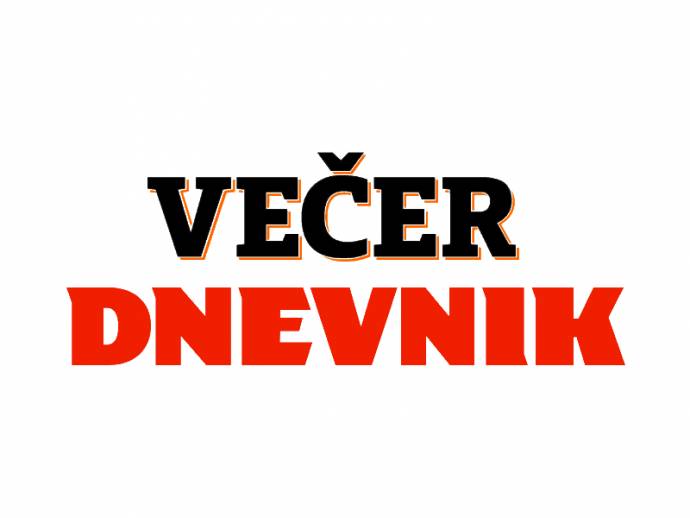In a written announcement, the companies Dnevnik and Večer Group said the move had been prompted by the situation in the market as both the number of buyers of print editions and the scope of advertising were in decline.
They say this is why it is increasingly difficult to bring out the two editions independently, "which jeopardises not only the independence of their journalism but also their survival".
The companies believe that the survival of the two daily newspapers is only possible through the plan to merge the two editions and their joint further development.
The Culture Ministry has confirmed for the STA having received a joint application by the two companies to issue a preliminary consent for the acquisition of a 50% stake DV Mediji, a company that is to issue a general news printed daily newspaper but is yet to be registered in the companies register.
The companies expect positive response from the ministry and the anti-trust watchdog believing that the merger does not represent concentration in the daily news media market.
The market features seven major print media outlets, plus several "extremely large and popular news portals that offer readers broad access to daily news content and are thus direct competition to Dnevnik and Večer," the release reads.
Dnevnik is part of the group DZS, which also comprises publisher DZS, spa operator Terme Čatež and Marina Portorož.
The latest available data from AJPES, the public agency in charge of corporate legal records, shows that Dnevnik posted a net profit of EUR 1.49m on EUR 17.91m in sales revenue 2016. The company reported a net profit of EUR 826,000 for 2017.
Established in 1951, Dnevnik has been a joint-stock company since 1991. Apart from its namesake daily newspaper, which comes out six days a week, the publisher also issues the weekly Nedeljski Dnevnik and various supplements.
Večer was first launched in 1945 under the name Vestnik, and was renamed Večer in 1952. Between 2008 and 2014 Večer was in majority ownership of newspaper publisher Delo while both were part of the beverage group Pivovarna Laško. After several failed attempts, Delo sold Večer to the company Dober Večer.
Večer Group generated EUR 1.23m in sales revenue and EUR 169,182 in net profit last year. Like Dnevnik, Večer comes out six days a week, but also has a Sunday edition called Večer v Nedeljo.
Dnevnik had 150 employees at the end of 2016, while Večer had 123.
In a separate STA report, the Slovenian Journalists' Association (Društvo novinarjev Slovenije, DNS) has reacted cautiously to the announced merger between newspaper publishers Dnevnik and Večer as details are yet to be laid out. Meanwhile, media expert Marko Milosavljević finds that the merger is a predictable reaction to the uncertainty in the media market.
Milosavljević, a professor at the Ljubljana Faculty of Social Sciences, says that media outlets have been in talks about potential tie-ups for a while in response to the situation in the market, trends in print media and issues of digital content monetisation.
"Slovenian media have had to realise that neither Facebook not the internet will offer them a new business model. They have expanded their readership through the web, but this is not reflecting properly in business results. Circulations keep falling and tie-ups are logical," he commented for the STA.
The publishers announced a merger of editions, which Milosavljević explains as merging the desks of lifestyle supplements and magazines of both newspapers and some other shared activities where they can optimise costs.
He does not think the merger means the two daily newspapers will merge into a single one, but rather merging support services such as accounting and marketing.
Legislation restricts tie-ups between general news daily newspapers, however, Milosavljević says that the Culture Ministry has defined the term general news newspapers in "quite unusual ways", like when the tabloid Svet24 was not included in the category with the explanation that it did not cover foreign affairs.
In examining the application for regulatory approval, the expert believes that it will be very important how the Culture Ministry and the Competition Protection Agency define the market. If they surmise that Slovenia only has three general news daily newspapers, it is clear the merger between Večer and Dnevnik would go beyond legal restrictions.
In some similar cases the Culture Ministry did not count the business newspaper Finance and the tabloid Slovenske Novice as general news daily newspapers. It is also a question what would be taken into account if the two newspapers do not actually merge into one.
Milosavljević warns that, given the absence of suitable media legislation, publishers will do what they can to deal with falling earnings. "The times when each of these newspapers had exceptional profits and circulations are gone."
The law keeps restricting mergers of daily newspapers, but considering that the media are in crisis, he says that after a while such restrictions will be seen as if there was a limit on market shares in CD sales.
The Journalists' Association responded to the announced merger by saying that it had learnt about the plan from today's press release. "There is too little concrete information at this stage to comment on the merger plans."
The association noted that many key questions about the future of the two newspapers and their staff remained unanswered. "It would be right for the owners to respond to them in a concrete and unambiguous way as soon as possible."
The association is monitoring the developments in this major change in the history of the Slovenian market in detail. It also called on the institutions in charge of deciding on whether to give the go ahead for the merger to do their job with the highest measure of meticulousness and responsibility.







